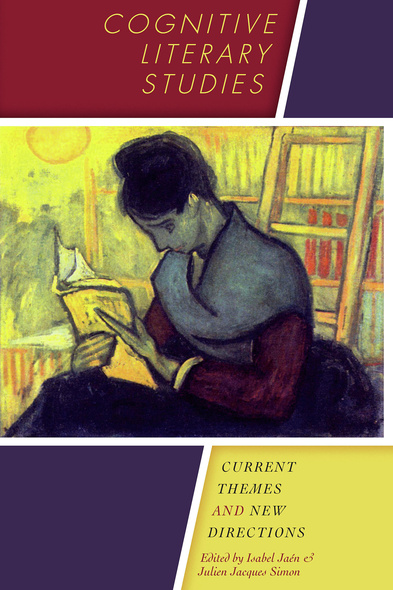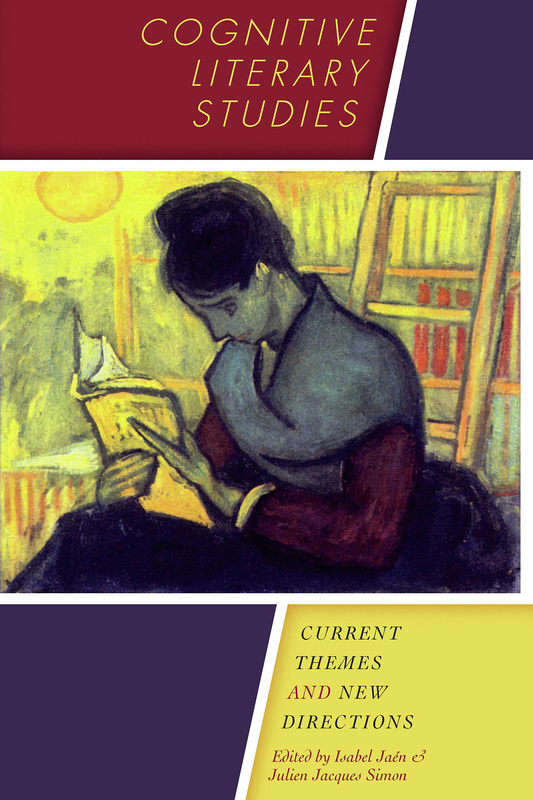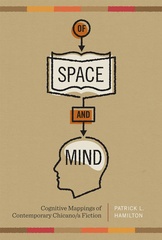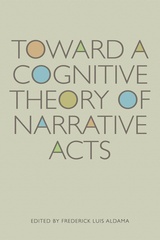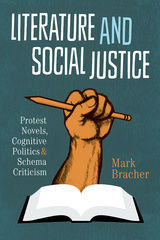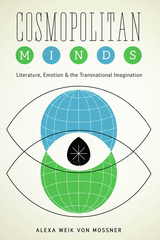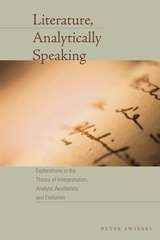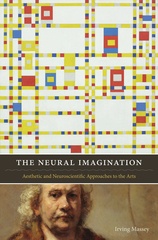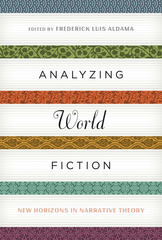Cognitive Literary Studies
Current Themes and New Directions
In the first decade of the twenty-first century, our understanding of the cognition of literature was transformed by scientific discoveries, such as the mirror neuron system and its role in empathy. Addressing questions such as why we care so deeply about fictional characters, what brain activities are sparked when we read literature, and how literary works and scholarship can inform the cognitive sciences, this book surveys the exciting recent developments in the field of cognitive literary studies and includes contributions from leading scholars in both the humanities and the sciences.
Beginning with an overview of the evolution of literary studies, the editors trace the recent shift from poststructuralism and its relativism to a growing interdisciplinary interest in the empirical realm of neuroscience. In illuminating essays that examine the cognitive processes at work when we experience fictional worlds, with findings on the brain’s creativity sites, this collection also explores the impact of literature on self and society, ending with a discussion on the present and future of the psychology of fiction. Contributors include Literature and the Brain author Norman N. Holland, on the neuroscience of metafiction reflected in Don Quixote; clinical psychologist Aaron Mishara on the neurology of self in the hypnagogic (between waking and sleeping) state and its manifestations in Kafka’s stories; and literary scholar Brad Sullivan’s exploration of Romantic poetry as a didactic tool, applying David Hartley’s eighteenth-century theories of sensory experience.
Isabel Jaén is Assistant Professor of Spanish at Portland State University. Julien Jacques Simon is Associate Professor of Spanish and French at Indiana University East. They are executive members of the Modern Language Association Cognitive Approaches to Literature discussion group and cofounded the Literary Theory, Cognition, and the Brain working group at Yale University.
- Foreword (F. Elizabeth Hart)
- Introduction (Isabel Jaén and Julien J. Simon)
- Section I: Cognitive Literary Studies Today
- 1. An Overview of Recent Developments in Cognitive Literary Studies (Isabel Jaén and Julien J. Simon)
- Section II: The Cognitive Sciences and Literary Theory in Dialogue
- 2. Why Literature Is Necessary, and Not Just Nice (Richard J. Gerrig)
- 3. Theory of Mind in Reconciling the Split Object of Narrative Comprehension (Joseph A. Murphy)
- Section III: Neurological Approaches to Literature
- 4. Don Quixote and the Neuroscience of Metafiction (Norman N. Holland)
- 5. The Mourning Brain: Attachment, Anticipation, and Hamlet’s Unmanly Grief (Patrick Colm Hogan)
- 6. The Literary Neuroscience of Kafka’s Hypnagogic Hallucinations: How Literature Informs the Neuroscientific Study of Self and Its Disorders (Aaron L. Mishara)
- Section IV: Language, Literature, and Mind Processes
- 7. Blending and Beyond: Form and Feeling in Poetic Iconicity (Margaret H. Freeman)
- 8. “A sermon in the midst of a smutty tale”: Blending in Genres of Speech, Writing, and Literature (Michael Sinding)
- 9. Counting in Metrical Verse (Nigel Fabb and Morris Halle)
- 10. Fictive Motion and Perspectival Construal in the Lyric (Claiborne Rice)
- Section V: Literature and Human Development
- 11. Education by Poetry: Hartley’s Theory of Mind as a Context for Understanding Early Romantic Poetic Strategies (Brad Sullivan)
- 12. Leafy Houses and Acorn Kisses: J. M. Barrie’s Neverland Playground (Glenda Sacks)
- Postscript: The Psychology of Fiction: Present and Future (Keith Oatley, Raymond A. Mar, and Maja Djikic)
- Contributors
- Index

